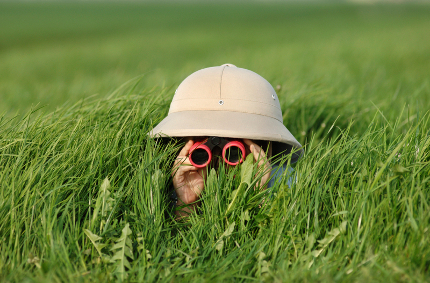Depending on your experience, you may dread the subject of science or look at it as just one of those things you HAVE to learn. I for one always loved science and it was one of my best subjects. In college I relished my anatomy, biology, organic chemistry, and astronomy classes and I was really sad when I finished all of my required classes. It is really important to me now that I instill in my children a love of science. There are so many fun ways you can teach children about science and much of it comes from everyday play! Here are some ideas.
Science Is Everywhere
As mentioned above, science encompasses much. Take moments throughout the day – playing, cooking, gardening, etc. – to point out scientific realities, which will awaken your child’s sense of the science around him. Also, by pointing out science as it happens, you will be teaching your child to develop keen observation for her environment, and observation is a hugely important aspect of science.
Nature Hikes for Budding Scientists
This is an excellent exercise any time of year, but is especially valuable and fun when the seasons are turning as they are now. If possible, hike the same general area over the course of the year, noting changes in the landscape. Take along field guides in the form of notebooks with your kid’s names on them, for identification of local plants, wildlife, rocks and minerals. You can also take binoculars and a magnifying glass to get a closer look at birds, bugs, and trees. Take pictures to document your studies.
Research & Play
Take the notes and pictures from your adventures and do some Internet research about the various things you found so that next time they can better observe what they see. Ask them if they have any questions and explore the answers together. Use the internet, books, or media to find out more about subjects that interest your child. Read books about natural science and nature under a tree in your yard or at a local park. Plant a garden or even a single potted plant and encourage your child to keep notes about the plant’s growth habits, etc. Keep your findings in a special notebook that can be a source of pride for your child. I REALLY, REALLY want this discovery museum so the kids can store their treasures. It also comes with 30 items of fossils, minerals, marine life and insects.
time they can better observe what they see. Ask them if they have any questions and explore the answers together. Use the internet, books, or media to find out more about subjects that interest your child. Read books about natural science and nature under a tree in your yard or at a local park. Plant a garden or even a single potted plant and encourage your child to keep notes about the plant’s growth habits, etc. Keep your findings in a special notebook that can be a source of pride for your child. I REALLY, REALLY want this discovery museum so the kids can store their treasures. It also comes with 30 items of fossils, minerals, marine life and insects.
Science Toys and Kits
There are so many wonderful kits and toys available these days with a science theme. There are baking soda and vinegar rockets, crystal growing kits, junior chemistry sets, butterfly habitats, bug collection and observation devices, and others. A simple set of magnets can teach children a lot about the science of magnetic poles and the earth’s magnetic forces and a planet mobile can get your child interested in space exploration. We have been eyeballing the Thames and Kosmos Classic Science Classic Chemistry set because I love the tie in to the Dangerous Book for Boys. But I wonder were the chemistry set for girls is??
Exciting Experiments
There are also many science experiments you can do at home with your kids. Study weather by making a rain gauge or simulating cloud formation in a glass. Melt an ice cube and boil the water to show the three properties of matter (solid, liquid, gas). Mix baking soda and vinegar to study the reaction between an acid and a base. Check the children’s area of your library for books on science experiments you can do at home, or look online.

Local Attractions
Explore your local area for science… state parks, nature workshops, wildlife preserves, science museums, planetariums, aquariums, summer camps, etc. Last year one of the metro parks in my area had a CSI summer day camp where kids learned aspects of forensic science. Our science museum has daily workshops you can join in. We don’t have to look far for play opportunities that teach.
Another wonderful benefit is that these activities encourage parental involvement and participation. As you exhibit a love of learning and a love for science, your children will follow suit. And best of all nature is the best place for fieldwork!! What do you find inspires children to learn about science?

